High-Quality Seal for Oven Door – Durable & Easy to Install
Explore high-performance seal for oven door and related technologies including cooker door seal, oven seals replacement, seal for oven, and door gasket oven. Understand application scenarios, technical data, manufacturing processes, and industry trends—empowered with real-world cases, standards, and expert analysis.
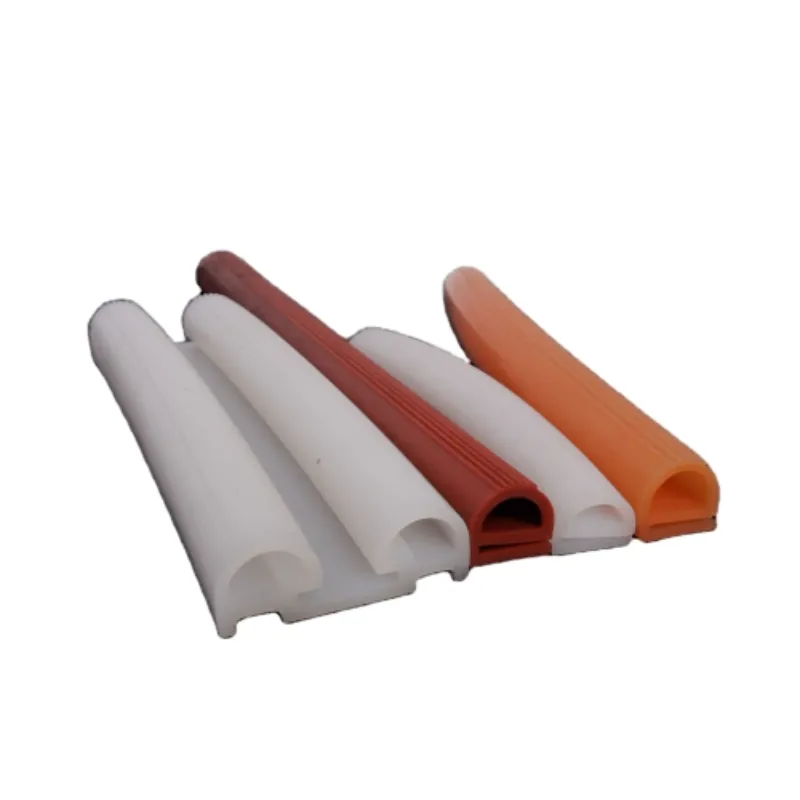
Industry Trends & Market Insights (2024)
The global seal for oven door market, including cooker door seal and oven seals replacement segments, is projected to grow at a CAGR of 6.8% through 2026, attributed to technology upgrades in food processing equipment, increased requirements for energy efficiency, and stringent FDA, ISO 9001, and ANSI/NSF standards.
- Key End Users: Commercial cooking, bakery, home appliances, pharmaceutical and petrochemical industries.
- Technological Advance: Use of high-performance silicone rubber for enhanced lifespan, temperature resistance, and environmental sealing.
- Lifespan: Premium silicone door gaskets: 1.5x longer than conventional EPDM elastomers (10,000+ operating hours at 250°C).
Key Technical Parameters of Seal for Oven Door (2024 Mainstream Models)
Product Introduction: High Performance Oven Door Silicone Seal Strip
High Performance Oven Door Silicone Seal Strip is engineered for oven seals replacement, cooker door seal and door gasket oven solutions in applications where hygiene, sealing integrity and temperature resistance are paramount. Manufactured under strict ISO 9001:2015 and FDA (21 CFR 177.2600) certified processes, it is designed for reliability in commercial, industrial and residential ovens.
- Premium platinum-cured silicone, non-toxic, food safe
- Temperature: -59°C to +280°C sustained; Peak to +310°C
- Excellent compression recovery & anti-aging properties
- Profile customization: T-shape, U-shape, round bulb, lip seal and more
- Color: Semi-transparent, gray, black, red, white
- Available with metal mesh cores for heavy-duty industrial needs
For product specifications visit: seal for oven door details page.
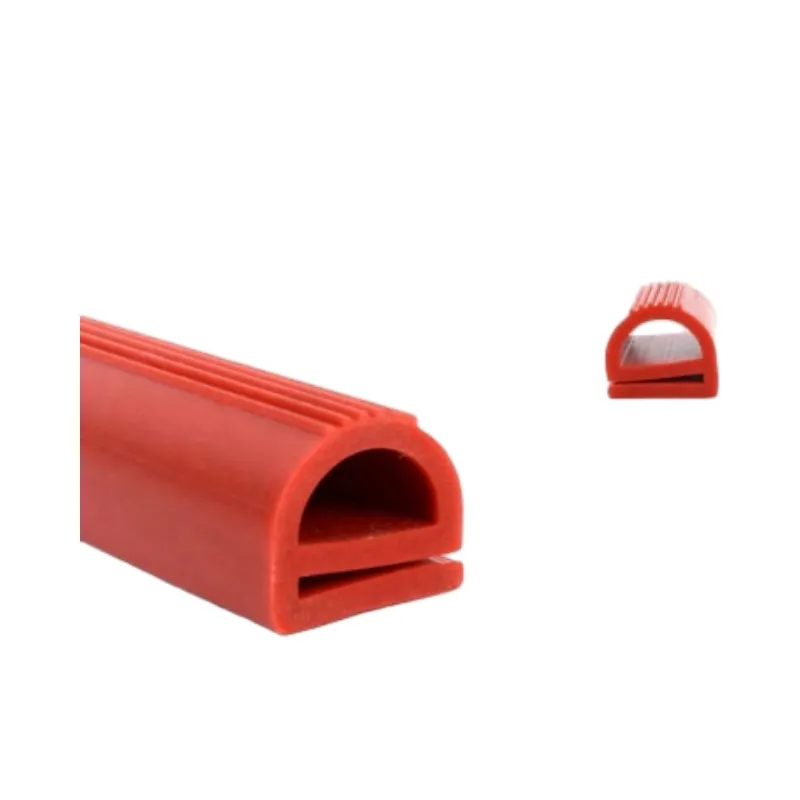
Manufacturing Process: Seal for Oven Door (Detailed Flow)
- 1Material Selection: Import FDA-compliant platinum silicone base, test purity >99.8%, Mooney viscosity control.
- 2Kneading & Mixing: Optimize reinforcing filler and antioxidant blends, ensure homogeneous dispersion.
-
3Extrusion or Molding:
- Profile Extrusion: Precision die-extrusion using CNC-fabricated molds
- Injection Molding: For complex gasket geometry (robot-assisted). - 4Curing: Multi-zone tunnel oven for platinum-cure system; temp profiles optimized for compression set & physical property targets.
- 5Secondary Machining: End joining, notching, metal insert application with CNC accuracy (±0.15mm).
- 6Quality Inspection: Full-cycle ISO/ANSI/IEC testing: durometer, compression set, elongation @ break, high-temp aging, FDA migration, dimension check.
- 7Packing & Labeling: Cleanroom packaging (Class 100,000), traceable coding.
Certifications: ISO 9001:2015 | FDA 21 CFR 177.2600 | RoHS | ANSI Z21.1 | SGS tested
Process flow diagram:
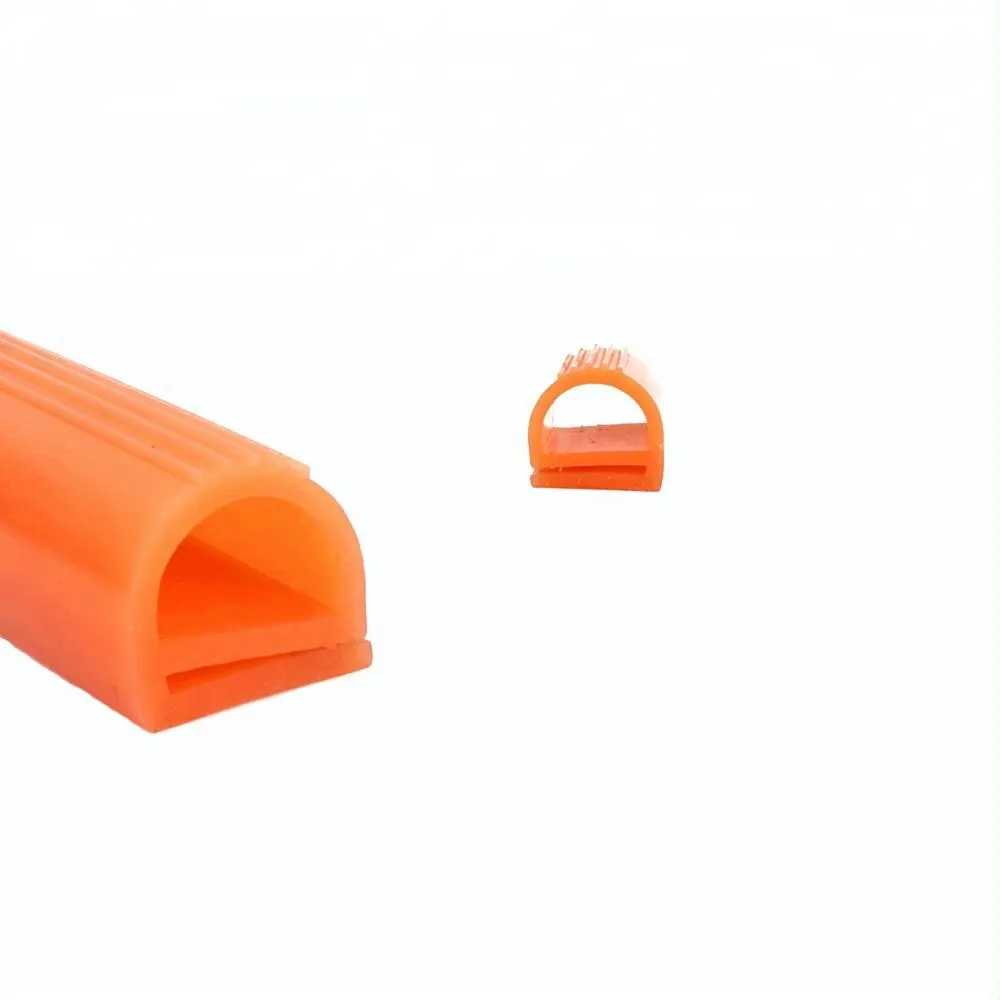
For more, see seal for oven door full production process.
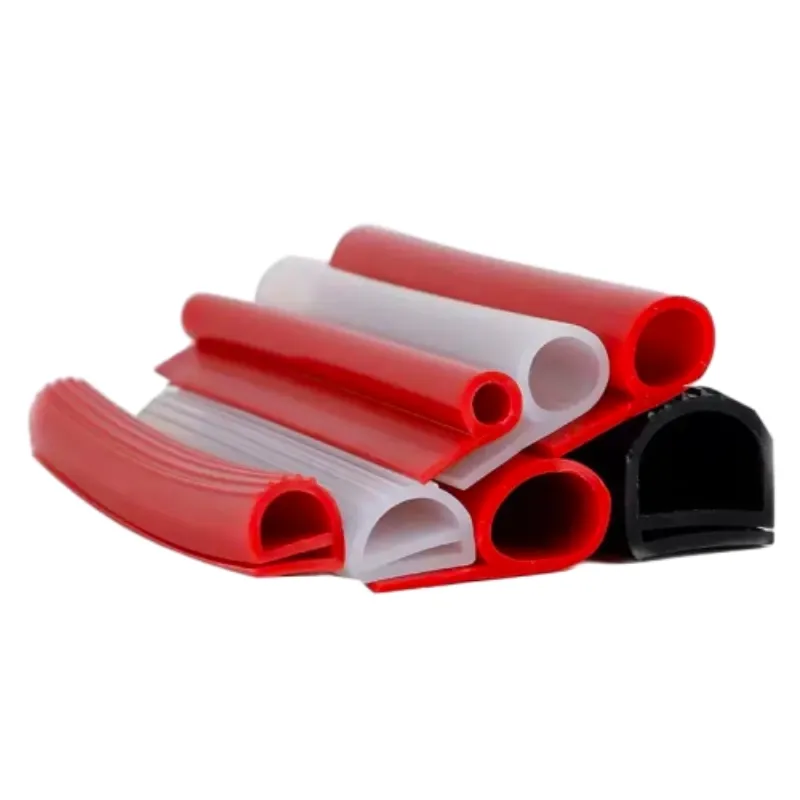
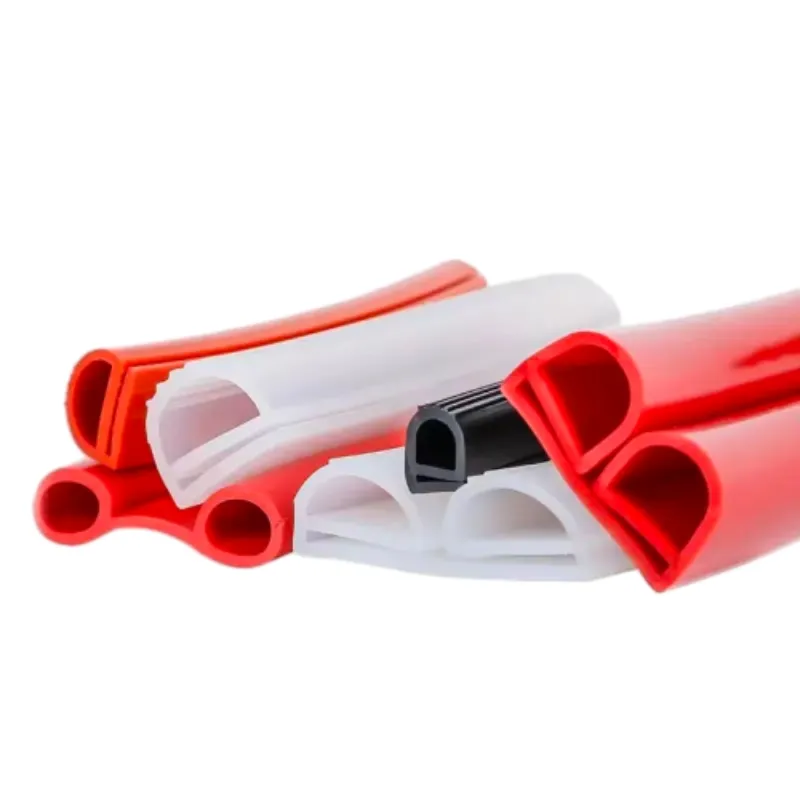
Technical Advantages of Silicone Seal for Oven Door
- Extreme Temperature Capability: Operates -60°C to +280°C (short bursts to 310°C). Far surpasses EPDM and SBR gaskets (critical for commercial ovens & bakery lines).
- Superior Elasticity: 400–520% elongation at break. Ensures optimal sealing even after years of door closing cycles.
- Non-toxic & Food-Grade: FDA and LFGB compliance for direct food contact. No VOC or odor emissions at high temperature.
- Anti-Aging/UV Resistance: >7-year outdoor lifespan, no embrittlement or color fading.
- Chemical Resistance: Resistant to oils, fats, cleaning agents, and kitchen acids.
- Customization & Integration: Can include metal mesh reinforcement, anti-microbial additives, special shapes.
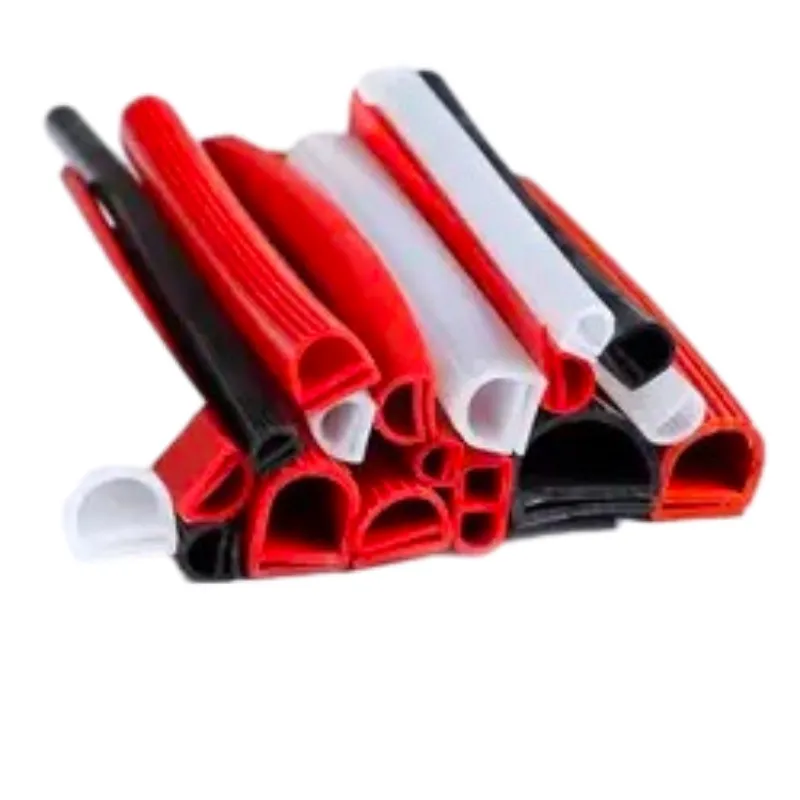
Product Specification: High Performance Oven Door Silicone Seal Strip
Product Comparison: Seal for Oven Door vs Main Alternatives
Application Scenarios & Industries
- Commercial bakery, pizza, and rotisserie ovens
- Professional kitchen appliances, ranges, combi-ovens
- Petrochemical process ovens, distillation towers
- Pharmaceutical dryers and sterilization chambers
- Residential ovens, cookers, and cooker door seal replacement
Case example: A European commercial bakery chain reduced oven heat loss by 13% and annual maintenance costs by 35% after switching to seal for oven door made of platinum-cured silicone.
Additional major users include international appliance brands and industrial equipment OEMs; direct delivery to over 40 countries with 7-year warranty and full technical support.
OEM/ODM & Customization Services
- CAD and 3D prototyping for any custom oven/cooker door size
- Material recommendations for chemically aggressive or high humidity environments
- Rapid prototyping: 3~7 days for sample; bulk delivery typically 10-14 days post-confirmation
- Free technical consulting and on-site engineering support
Typical application installation:

Tested in harsh environments:

Client Experience & Service Case Study
Issue: Frequent oven downtime, food safety recall risk from generic rubber door gaskets degrading at 200°C.
Solution: seal for oven door platinum silicone strip, custom T-profile, metal-mesh inserted.
Result: Door heat loss ↓18%, downtime cut by 92%, no food safety incidents in 2 years.
Quote: “Our oven gasket replacement intervals dropped from every 9 months to just over 2 years… The sealing integrity and build quality are unmatched.”
- Industry authority: Featured as OEM selection in European Food Technology Review 2023 [Source]
- Years in Service: 16+ years continuous industry supply (ISO9001 certified)
- Major global users: Groupe SEB, Manitowoc, Siemens, Rational, Hobart and others
Professional Seal for Oven Door Expert Q&A
- 1. What are the standard materials for seal for oven door and why is platinum silicone preferred?
- Silicone, EPDM, FKM, and, for special cases, ceramic fiber—each reviewed per ISO 3601 and FDA norms. Platinum-grade silicone delivers superior heat, chemical resistance, food safety and NO odor or contamination in high temp cycles.
- 2. What is the typical hardness and why does it matter?
- Measured in Shore A: 45~70 Shore A is standard. High Performance Oven Door Silicone Seal Strip is set at 55±5 for optimal door compression, rebounds, and sealing effectiveness (per ASTM D2240).
- 3. How does installation affect seal life? What are best practices?
- Correct installation, with 4~8mm compression and precise channel fit, prevents over-stretching or under-compression. Follow OEM installation guides, and inspect seating area for sharp edges or residue before placement.
- 4. What are the main testing standards for oven door gaskets?
- Key standards: ISO 3302 (dimensions), ISO 48 (hardness), ASTM D573 (heat aging), FDA 21 CFR 177.2600 (food contact).
- 5. Can seals be customized for industrial ovens with aggressive chemicals or high humidity?
- Yes. Choose fluoroelastomer or silicone with special crosslinkers and request mesh-reinforced cores for dimensional stability.
- 6. What’s the typical delivery lead time & what is the warranty policy?
- Rapid prototyping in 3~7 days after drawing approval. Bulk: typically 7–15 working days, all with 7-year warranty covering seal cracks, deformation, or compression set beyond standards.
- 7. What kind of support or documentation is provided with oven seals replacement?
- Each batch contains test certificates (ISO, FDA), installation guide, and lifetime technical consultation.
-
Window Weather Stripping for Noise ReductionNewsJul.29,2025
-
Top Safety Standards for Corner ProtectorsNewsJul.29,2025
-
Step-By-Step Guide to Replacing Garage Door SealsNewsJul.29,2025
-
How to Fix a Loose Under Door Draught StopperNewsJul.29,2025
-
Edge Banding Tape for High-Traffic Commercial SpacesNewsJul.29,2025
-
Best Heat-Resistant Materials for Cooker Door SealsNewsJul.29,2025
-
Weather Stripping Door: Enhance Comfort and EfficiencyNewsJul.23,2025